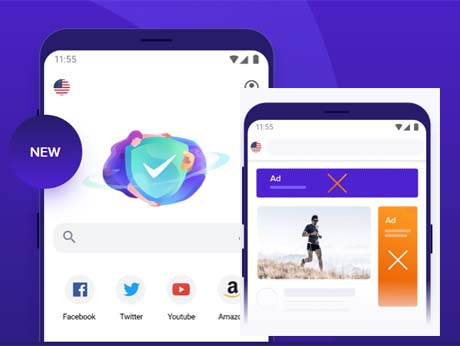
New Delhi, April 9, 2020: Global leader in digital security products, Avast , has released an Android version of Avast Secure Browser to extend its platform support beyond Windows and Mac on desktop to mobile.
Avast Secure Browser for Android was developed following Avast’s 2019 acquisition of Tenta, a private browser backed by Blockchain pioneers ConsenSys, and has been built from the ground up by privacy and cybersecurity engineers focused on total encryption. At its core is strong encryption including AES-256, ChaCha 256-bit, and the latest TLS/SSL cryptographic protocols for the data transport layer. To ensure that user DNS requests are kept private and secure, Avast Secure Browser for Android supports multiple DNS options straight out of the box, such as DNS over TLS, DNSSEC and decentralized DNS support.
Additional built-in security and privacy features available with Avast Secure Browser for Android include:
Says Scott Curtiss, Vice President and General Manager of Avast Secure Browser: "Avast's core mission is to make the world a safer place by protecting the security and privacy of every customer. Our commitment to being a privacy-by-design technology provider was behind our acquisition of leading private mobile browser Tenta, whose technology has contributed to the development of our new Avast Secure Browser for Android. We know that our customers care deeply about security and privacy and want to be in control of their own personal data without compromising the quality of their online interactions. Our goal is to be the first all-in-one browser to secure our users’ privacy along with a frictionless secure browsing experience. Adding support for mobile is another milestone in our journey towards this long-term goal."
In early March, Avast Threat Lab researchers found that the increasing use of mobile devices around the globe is fueling the growth of mobile-related malware. To date, 131 COVID-19 related apps have been detected as malicious through Avast’s apklab.io platform as cybercriminals look to exploit the pandemic using social engineering tactics. According to statistics gathered by the Avast researchers between October and December 2019, adware (software that hijacks user devices to spam them with malicious ads) is responsible for 72% of mobile malware, with the remaining 28% of threats linked to banking trojans, fake apps, lockers and downloaders.
“There is still a perception among many consumers that on mobile, internet and browser-based threats do not exist”, said Curtiss. “This is not the case. Mobile is a lucrative platform for cybercriminals because of its majority market share versus desktop and higher levels of internet traffic. In the past 12 months, we’ve seen adware rise by 38% on Android.”
Later this year, the mobile version of Avast Secure Browser will be made available on iOS. Avast Secure Browser is currently compatible with Windows 10, 8 and 7, Android and MacOS and is available to download now at www.avast.com/secure-browser.